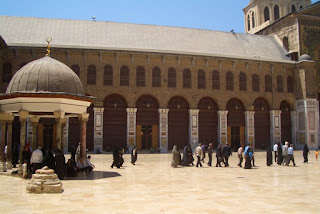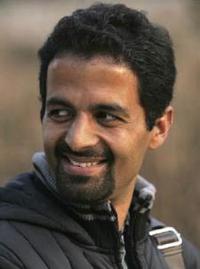
Patan Durbar Square
The last few days have been stocked full of bizarre experiences. It never occurred to me that during my trip I might see cremated corpses, animal sacrifices, exploding pressure cookers (no one was hurt!), or old women carrying their baskets of vegetables to the market on a public bus, but over the last four days that’s pretty much been it. Thursday evening around 6:30 I was sitting at the kitchen table with my host sister Tara when I suggested that we visit the Pashupatinath temple since we had nothing to do before dinner. Just a 5 minute walk from our house, the Pashupatinath temple is the oldest Hindu temple in Kathmandu, and one of the most important religious sites in Nepal owing to its position on the sacred Bagmati River. As we walked over Tara was explaining that the temple is enormously wealthy due to the significant level of donations given by the faithful each year, and so it spends large amounts of money on community works, the most obvious being the home for poor elderly Hindu’s located on the temple grounds.
Patan Durbar Square
It was getting a bit dark, but it was still clear that the temple had an expansive property and an impressive range of temples dedicated to several Hindu gods, the most important being the Lord Shiva. We walked toward the main section of the complex, where the Bagmati River flows through an amphitheater-style area currently being used for evening prayers. As we approached the main gates, Tara said “Oh they’re cremating the dead- look.” I cautiously looked over and saw a smallish pyre- no signs of burning bodies. So far so good. We walked through the gates as I carefully avoided looking directly at the pyre and stood to watch the evening prayers being carried out on the other side of the river. Suddenly Tara grabbed my arm and said “Oh my god there’s another body.” Ok now I’ve NEVER been a fan of horror movies and the like due to my somewhat inconvenient and exaggerated squeamishness, so as you can imagine that this was about the last thing I wanted to hear. Tara proceeded to explain that you’re not allowed to burn bodies during the evening prayers, and so the family standing to my left with the corpse was waiting until they were finished to proceed. As for the pyre to my left, once you start cremating a corpse you can’t very well extinguish the fire and start again, so exceptions were made for these cases. We stood there for about ten minutes, which was as long as either of us could handle being in such close proximity to the corpses. We were beginning to feel a little lightheaded and so decided to leave the area and walk through the terraces surrounding the upper levels of the temple. As we were passing next to the pyre I couldn’t help but glance over- at that moment the attendant whose job it is to stoke the fire (can you imagine a job like that?), began poking at the fire with a long piece of bamboo and yep sure enough there was the dark outline of a torso as it lay in the fire, slowly being incinerated. At that point we both jumped and practically sprinted out of the temple complex. We got about 15 meters before we had to sit down and take a few deep breaths. Tara mentioned that no matter how many times she’s been to the temple she never gets used to seeing the cremations, which reassured me a bit about my own slightly elevated pulse. Luckily it was dark enough that I couldn’t see much aside from the black outline of the corpse against the brightness of the fire, but suffice it to say that this image has been burned into my memory forever, pun intended.
Patan Durbar Square
Well after a few hours I got over the shock, ate dinner, and went to sleep (nightmare-free), but that night definitively qualifies as one of the strangest things I’ve seen so far. The only thing that can really compete with it is the buffalo sacrifice that we saw yesterday (Saturday) while visiting the Durbar Square in Bhaktapur. A group of 8 of us decided to spend the night in Nagarkot, a resort village in the mountains surrounding the valley from which you can see the Himalaya’s on a clear day. On the way we spent an afternoon wandering around the medieval town of Bhaktapur, which sits about 15 km from Kathmandu (translation: an hour bus ride on a traffic-choked road), and is well known for its pottery production and for having the tallest temple in the Kathmandu Valley. As it turns out, every Saturday they sacrifice a buffalo outside the temple of the Bhairabnath Temple, and lucky us we arrived just in time. Long story short, I couldn’t bring myself to watch- the mooing of the animal as it’s throat was being cut was enough to convince me to stay away. According to Anthony, it took about ten seconds for it to die and even after the head was removed, the body was still moving a bit. If I thought the cremation was bad this was about 5 times worse. Maybe in a few days I’ll have the guts to look at the pictures that the others took of the whole procedure but for now I’m just fine keeping my experience to a minimum.
Bhaktapur Durbar Square
We eventually made it to our hotel on the top of Nargakot, and spent a very pleasant night in the cool fresh air surrounded by a dense fog (distinctly Dracula-ish for the record). The trip back to Kathmandu today took 5 hours, which is best put in perspective when you consider that Nagarkot is actually only 32 Km from KTM.
View from Nargakot
After spending so much time sitting on vehicle-clogged roads, I think my lungs are ready to murder me and I may have developed a permanent cough. I’m starting to think that I should have taken up smoking before coming here just to give my lungs a chance to adjust to all the delicious carcinogens in the air. Between the trash laying all over the place and the pollution caused by all the traffic, I often find myself wondering how different Kathmandu must have been before the West arrived with its generous gifts of diesel and plastic. Nepal’s rich history is evident everywhere- in the architecture, the clothing, and the religious paraphernalia. How exotic it must have been- essentially a medieval kingdom shut off from the influence of British colonizers, only opening up to foreign interaction in the 1950s.
Anyway, it’s back to work for me now. This coming Saturday we’re going to visit the Boudha temple, which is the center of Buddhism in Nepal and home to Tibet’s expatriate community in Nepal. I’ve heard from many people that it’s their favourite place in Kathmandu, so I’m really looking forward to it.

























